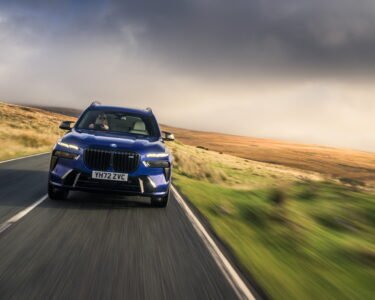Lawrence Stroll, executive chairman of Aston Martin, has announced the termination of the Lagonda electric vehicle (EV) project, signaling a significant shift in the company’s strategy towards luxury EVs. Initially poised to redefine the luxury EV market, the project’s cancellation underscores a strategic refocusing on Aston Martin’s core offerings of luxury sports cars and SUVs. This move comes amid the automaker’s decision to delay its first EV launch to 2026, highlighting challenges in the luxury EV sector.
Historic Ambitions Dashed
The revival of the historic Lagonda brand was aimed at capturing the burgeoning luxury EV market, specifically targeting affluent tech enthusiasts with high-end electric sedans and SUVs. Under the guidance of former CEO Andy Palmer, Aston Martin had envisioned launching two groundbreaking electric models. However, the project’s discontinuation, as confirmed by Stroll, marks a pivotal moment for Aston Martin, reflecting a departure from its ambitious plans to diversify into the luxury EV market.
Strategic Refocus and Future Endeavors
Following a change in ownership in 2020, Aston Martin has undergone a strategic reassessment, leading to the project’s cancellation. Stroll emphasized the company’s commitment to its heritage of producing high-performance luxury sports cars and SUVs, rather than venturing into the niche segment of ultra-luxury EVs. Despite this, Aston Martin’s aspirations in the EV domain remain intact, with plans to introduce its inaugural EV, a high-riding, quad-motor grand tourer, by 2026. This decision aligns with the company’s broader strategy to embrace electrification, underscored by a £2 billion investment in advanced technologies over the next five years.
Implications for Aston Martin and the Luxury EV Market
The cancellation of the Lagonda EV project and the subsequent delay in launching Aston Martin’s first EV reflect broader challenges within the luxury EV sector, including technological partnerships and production complexities. The company’s strategic pivot underscores the dynamic nature of the automotive industry, as manufacturers navigate the transition from internal combustion engines to electric powertrains. For Aston Martin, this recalibration signifies a renewed focus on its core strengths, while still adapting to the evolving demands of the automotive landscape.
The decision to abandon the Lagonda EV project, while disappointing to some, may ultimately reinforce Aston Martin’s position in the luxury automotive sector. By concentrating on its renowned sports cars and SUVs, the company aims to solidify its legacy and ensure its relevance in an increasingly electric future. As Aston Martin embarks on this refined strategic path, the outcomes of these decisions will be closely watched by industry observers and luxury EV enthusiasts alike.




